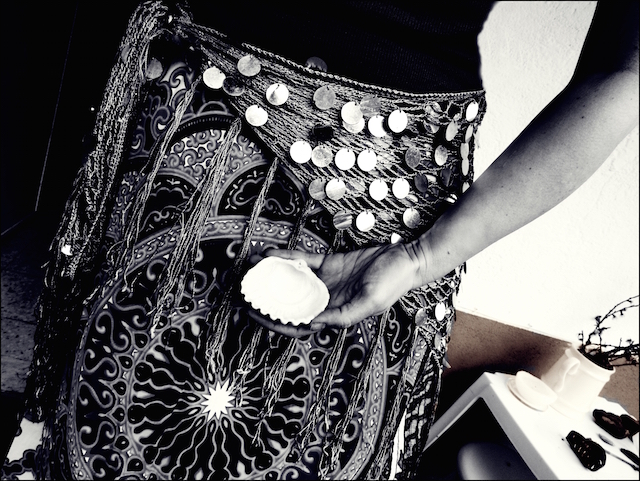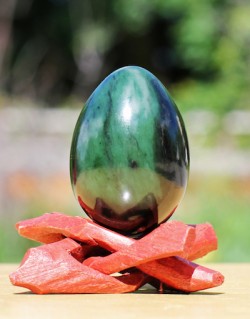
Nothing taught me about the true meaning of happiness like Egypt.
The pursuit of happiness may well be the most stubborn of all human clichés. Everybody, throughout human history, seems to be searching for it, selling it, finding it and losing it.
We run, hide, go into treats and retreats. We try hard, fail and presume we’ll never find something that may be already here, right where we are.
Imagine a person desperately searching for her glasses while wearing them. They’re right there, on her nose, in front of her eyes, but she keeps searching for them. That’s us and our fleeting lover, happiness.
Happiness isn’t something we conquer, buy or receive from others, but rather an infamous attitude toward life.
Why infamous?
Because it demands transcendence, and transcendence demands acceptance, something that causes allergic rashes for the majority of the human population (and probably for aliens). We’re trained to struggle against life—not to accept it. To our ears, acceptance sounds like weakness, so we insist on swimming against the tide, ignoring the fact that the tide is stronger than us.
Transcendence, the quality that allows sustained happiness, is the ability to go through pain, sadness and darkness without losing perspective.
Feeling happy when everything goes according to plan is easy, but it’s a lame version of happiness. Real, sustained, all-encompassing, chronic happiness requires contrast. Sunny days must be coordinated with rainy days.
Real happiness kicks a**; it goes as far as suggesting we can enjoy the bumpy parts of the road, the tears, the low points, the falls and the gloomy moments.
It sounds like sadism, but it’s the opposite.
The point is not to try to avoid or deny hardships, but to move through them as smoothly as possible. Happiness reminds us we can go through the scary tunnel knowing everything is transitory. Life is made of cycles we cannot stop—birth and death, hot and cold, day and night, high and low, laughter and tears, beginnings and endings, light and darkness.
Nothing taught me about the true meaning of happiness like Egypt.
Om Dunya, the Mother of Life, they call it. A tough mum, I’d add. While living and performing in Cairo, I had plenty of opportunities to dig deep into the study of happiness and its sister, transcendence. In the midst of conflict, disappointments and chaos, Baladi, a dance style Egyptians associate with poor, common, unsophisticated matters, helped me make sense of the apparent nonsense.
If you’re an Oriental Dancer—a.k.a. a bellydancer, the fallen woman who carries the devil in her hips and eats men for breakfast with a glass of milk on the side—you know what I mean. If you’re not, follow me.
When I started performing in Cairo, I was welcomed by the advice of my musicians, old enough to be my grandparents and more experienced in the field and in their culture than I could ever be. They warned me, worried about my reputation:
Madam, be careful! Don’t do baladi on your show. You are an artist and an educated dancer. Baladi is beneath you—from poor, common people to poor, common people.
I got to choose my musicians as well as the program of my show. I also got to choose to follow or to ignore well-intentioned and sensible advice.
Baladi, which literally means, “from my homeland,” does indeed refer to common, down-to-earth things and people. My musicians got that right. For instance, a baladi coffee-shop is a common street parlour where common folk, mostly men, gather to drink tea, smoke shisha (water pipe), play sheesh besh (backgammon) and watch time go by. Baladi is also the dance style Egyptians do at home, at parties and weddings; it’s their natural way of mourning tragedies and celebrating joys. It’s little girls’ initiation into womanhood—Oriental Dance in its most primitive and essential form.
Common it may be, but how extraordinary!
I ignored the warnings and created a baladi progression, which Egyptian musicians call Awadi, an improvised conversation between dancer and musicians, particularly accordion and percussion.
As happens with great conversations, there was no script and no preprogrammed subjects or conclusions. We took the time to listen to each other, not knowing how the music and the dance—the conversation—would go. We threw ourselves into the moment, using what we had, flowing with the gifts each second brought: sweet or sour, pleasant or unpleasant, smooth or rough, happy or sad.
Sometimes, we laughed out loud and went nuts with joy; other times, we cried.
And that was fine.
We took pleasure and made art out of everything—especially the dark moments. No avoidance of pain or wearing masks; we faced the chaos, breathed through it and celebrated it.
We knew everything fits in Baladi, because Baladi is life. And happiness resides, perhaps, in the ability to flow with whatever is happening in the moment and transcending it.
Once you accept dancing with the monster, it loses its power.
I started alone, with the accordion, in a shameless journey inside my womb, the literal and metaphorical source of creation. Movements of joy, love and pleasure—sexual, emotional, physical, mental and spiritual.
Ah, and the nostalgia for something I cannot name!
Then, slowly and only when the time arrived, percussive elements joined us, bringing increasing depth to the conversation.
Aside from the understated beauty of the style, the logic beyond logic at the core of this dance struck me as divine—filled with unexpected wisdom.
A Baladi Awadi is 100 percent improvised and speaks to resourcefulness; we cannot predict how it will happen, but we’re ready to face whatever comes. We release our ego. We’re open, receptive, vulnerable and joyful while facing the unknown. In the same way, we cannot plan or predict life; we experience it as it comes, dealing with circumstances the best we can.
Here’s the Baladi invitation: Grab the moment as it is and ride it with style, nodding to whatever life is offering us. I’m not talking about the things we can avoid, but the things we cannot.
Through the looking glass we see life is precious, no matter what.
We can be happy, even while crossing a tempest, because we understand it’s part of the dance. We can enjoy the moment—not after, not when the sun is out, not when we feel better, but now. Only now.
At the end of each Baladi progression, I realized how sacred that dance is and how much it taught me about life. I’d started moving within, just me and the accordion. I’d moaned with pleasure while feeling the pain. I’d grown out of that dark, damp womb and into the light through the beat of the percussion. I would invariably end up in an intense, loud, unapologetic celebration with the whole percussive section of the orchestra at my feet. It reminded me of foreplay, lovemaking, orgasm and cuddling with the occasional post-coital cigarette.
Gradually, sadness turned into joy, and the womb became the world. If this isn’t a sacred art, I don’t know what is.
The striking thing about the underrated Baladi dance is that it embodies wisdom without making a fuss about it. It’s divinity uttered in silence—transcendence in the shape of an ordinary dance ordinary people have been doing, as naturally as breathing, at their temples and homes, for centuries.
In Baladi, as in life, our hearts dance inside our wounds, liberating us from their destructive power. We don’t deny them; we embrace them and transform them. Pure alchemy. There is only love on the other side of the tempest.
Baladi is from poor, common people to poor, common people,
My musicians told me.
I decided to ignore their advice and, therefore, earned a happy smile that insists on never leaving me.
~
~
Relephant Mindful Market product:
Love Stone
Relephant Read:
The Alchemist’s Stone: Gratitude for the Wisdom of a Changing Body.
~
Author: Joana Saahirah
Editor: Toby Israel
Images: Author’s Own
~



Read 0 comments and reply